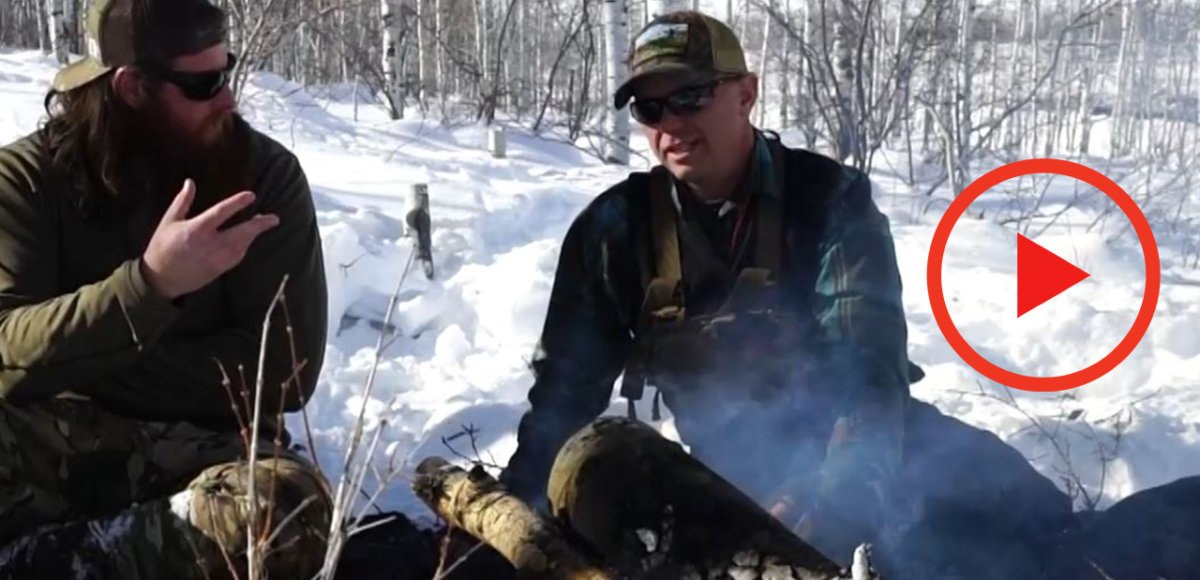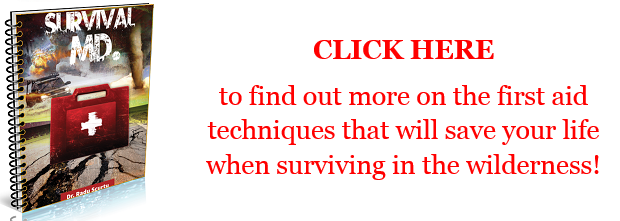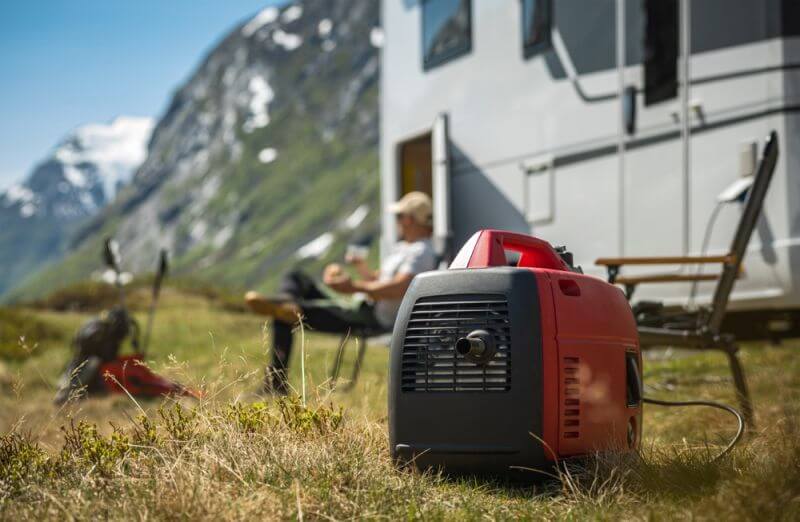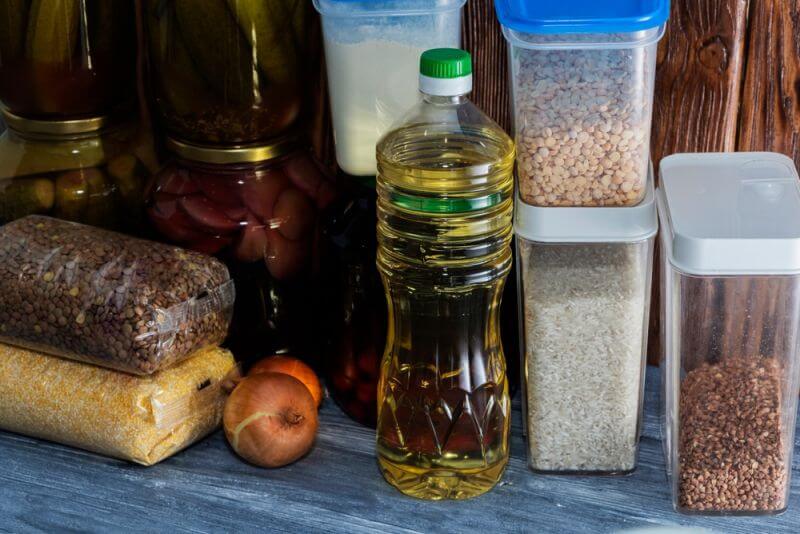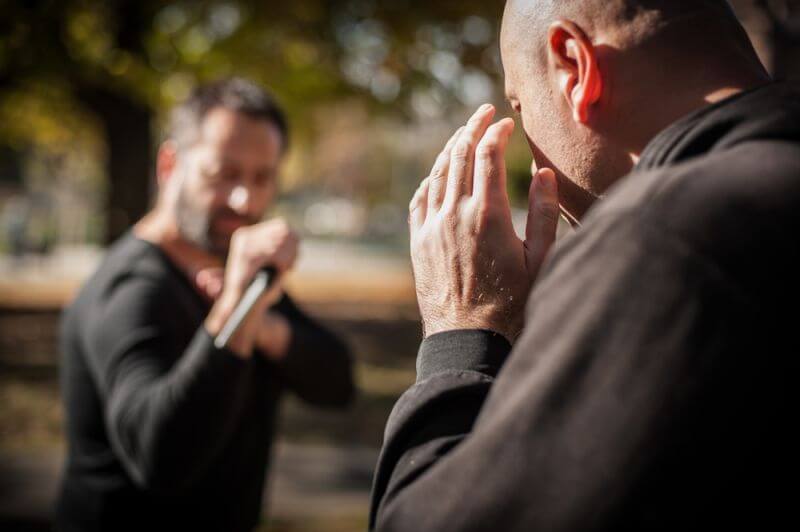Hey, this is Tyler with Survivopedia.
Came here with Chris. We’re doing a little bit of winter survival scenarios. Wanna talk really quick about water.
We’ve talked about fire and shelter and this is the base level shelter. Shelter, also, and I’m going to kind of reiterate this, the clothes that you’re wearing are shelter, getting your butt off the ground is shelter, stopping yourself from the wind is shelter, which you can do by piling up firewood.
What’s next?
Water.
So right, if we’re gonna move to water, I like to bring a clean canteen. All it is a single wall canteen that I can boil in. It’s a half a gallon which means I only get a boil is twice a day. A lot of people will get these little cups, right?
But mathematically what you’re about to break down. It’s very labor-intensive
Yes, like16 boils. Okay, minimum, right? Because one cup is what? Like an eighth – yeah – of a gallon, right? And I don’t always get a full cup of water because I’m boiling a half to two thirds or I can just get something that’s big and do it twice a day.
When you’re saying that snow, like this handful of snow, is 90% air, correct?
Yes. So, I need nine gallons of that volume of water to make one gallon of water.
Okay, which gets stupid is really quick. Yeah, so I need to fill this nine times up.
Well, it’s a half gallon. So, for a gollon you’re doing 18, right?
Yes, correct. So, I have to do 18. If you can take it out of the creek, or you can get actual ice, that’s going to be more dense and it’s going to function. It’s going to give you water faster.
Okay, right.
You do need to take down two of these a day. If you’re not drinking, at least that much, you’re getting behind the curb and get dehydrated. Yeah. Okay? Some other misnomers when it comes to water. That’s the main one. People think you can’t eat snow, right? Can’t eat if you miss the biggest hole in your mouth. Cold, huh? I’ll come back to that.
There is a misnomer that you cannot eat snow because it will cause hypothermia. Hypothermia is caused by hypothermia. This isn’t going to drop your core temperature, low enough for it to matter. Especially if you’re moving or you’re working while you’re out doing stuff eat snow. My proof of this is we have multiple generations of Eskimo, Tlingit, Inuit, Native Americans that lived north of the Arctic Circle where there are no rivers, just eating snow. Yeah, so there’s nothing wrong with eating snow. If you’re going into hypothermia, stop there. Get a fire. Get some other stuff on.
There’s nothing wrong with getting a plastic bag that you put snow in, that your body melts. If it gets too cold, take that off your body. Boil it. Find another way to deal with it. But my go to my fallback, in winter, when it comes to water is melting and boiling in a can and I know a lot of you are going to immediately say, well, what about those filters, right? Yeah. What happens when you fill a filter with water and you leave it out in a freezing environment.
Well, there’s going to be water in there, no matter how much you empty and that night it’s going to freeze over and crack it.
And it’s gonna break in if it doesn’t work. So, get yourself a canteen, eat snow, unless you’re too cold. Drink all the water you can sustain. Make stews. And what I mean by that is take, take the tips from pine trees, take water edibles, put them in that water. Boil it. Eat it. Get your nutrients, your vitamin C, drink two of these today and you’re good to go.
All right. Hopefully, that’s valuable for you. And thank you for watching.
Disclaimer: The content of this book is for informational purposes only and is not intended to diagnose, treat, cure, or prevent any condition or disease. You understand that this book is not intended as a substitute for consultation with a licensed practitioner. Please consult with your own physician or healthcare specialist regarding the suggestions and recommendations made in this book. The use of this book implies your acceptance of this disclaimer. The publisher and the author make no guarantees concerning the level of success you may experience by following the advice and strategies contained in this book, and you accept the risk that results will differ for each individual.


